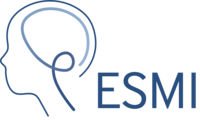
European Spinocerebellar Ataxia Type 3/Machado-Joseph Disease Initiative
European Spinocerebellar Ataxia Type 3/Machado-Joseph Disease Initiative
ESMI was funded in the framework of the EU Joint Programme – Neurodegenerative Disease Research (JPND) in partnership with the European Commission (Jpco-fuND). The national funding in Germany is provided by the German Ministery of Education and Research (BMBF, Germany). In addition to Germany with locations in Bonn, Tübingen, Heidelberg, Essen and Aachen, the following countries are represented: Portugal, Great Britain and the Netherlands. There are also collaborations with France, Brazil and the USA. Cooperation with other countries is planned. The study is coordinated by Prof. Dr. Thomas Klockgether and PD Dr. Jennifer Faber.
Background and aims
The aim of this study is to compile a trial-ready cohort of sufficient size consisting of patients with spinocerebellar ataxia type 3 (SCA 3) and first-degree relatives, so-called risk persons, for future interventional studies. Spinocerebellar ataxia type 3 (SCA 3) is also known as Machado-Joseph's disease and is the most common autosomal-dominantly inherited ataxia. Up to now there is no medical treatment available. A main focus of the study is to identify biomarkers that show the disease severity at a very early stages, including the presymptomatic stage before the clinical onset of symptoms. Such biomarkers are of particular importance for the design of future inverentional trials.
Overview
ESMI brings together international cohorts, whose participants all undergo the same standardized study protocol. Special attention is paid particularly to the so-called individuals at risk, i. e. first-degree relatives who have a 50% risk to be carriers of the SCA3 causing gene mutation.
Course of the study
In addition to the clinical neurological examination, the studies also include blood sampling (optionally also cerebrospinal fluid collection) and MRI imaging. In addition, the survey of subjective perception of quality of life and impairments in activities of daily living allows to assess patient reported outcome measures.
Further information and contacts can be found under https://ataxia-esmi.eu.
Principle Investigator: Prof. Dr. Thomas Klockgether
Status: multi centric, ongoing, recruiting active
Study Coordination / Project Management
Publications
Hübener-Schmid J, Kuhlbrodt K, Peladan J, Faber J, Santana MM, Hengel H, Jacobi H, Reetz K, Garcia-Moreno H, Raposo M, van Gaalen J, Infante J, Steiner KM, de Vries J, Verbeek MM, Giunti P, Pereira de Almeida L, Lima M, van de Warrenburg B, Schöls L, Klockgether T, Synofzik M; European Spinocerebellar Ataxia Type-3/Machado-Joseph Disease Initiative (ESMI) Study Group, Riess O. Polyglutamine-Expanded Ataxin-3: A Target Engagement Marker for Spinocerebellar Ataxia Type 3 in Peripheral Blood. Mov Disord. 2021 Nov 16; 36 (11); 2675-2681. doi: 10.1002/mds.28749.
Faber J, Schaprian T, Berkan K, Reetz K, França MC Jr, de Rezende TJR, Hong J, Liao W, van de Warrenburg B, van Gaalen J, Durr A, Mochel F, Giunti P, Garcia-Moreno H, Schoels L, Hengel H, Synofzik M, Bender B, Oz G, Joers J, de Vries JJ, Kang JS, Timmann-Braun D, Jacobi H, Infante J, Joules R, Romanzetti S, Diedrichsen J, Schmid M, Wolz R, Klockgether T. Regional Brain and Spinal Cord Volume Loss in Spinocerebellar Ataxia Type 3. Mov Disord. 2021 Oct 18; 36(10); 2273-2281. doi: 10.1002/mds.28610.
Wilke C, Haas E, Reetz K, Faber J, Garcia-Moreno H, Santana MM, van de Warrenburg B, Hengel H, Lima M, Filla A, Durr A, Melegh B, Masciullo M, Infante J, Giunti P, Neumann M, de Vries J, Pereira de Almeida L, Rakowicz M, Jacobi H, Schüle R, Kaeser SA, Kuhle J, Klockgether T, Schöls L; SCA3 neurofilament study group, Barro C, Hübener-Schmid J, Synofzik M. Neurofilaments in spinocerebellar ataxia type 3: blood biomarkers at the preataxic and ataxic stage in humans and mice. EMBO Mol Med. 2020 Jul 07; 12 (7). doi: 10.15252/emmm.201911803.
